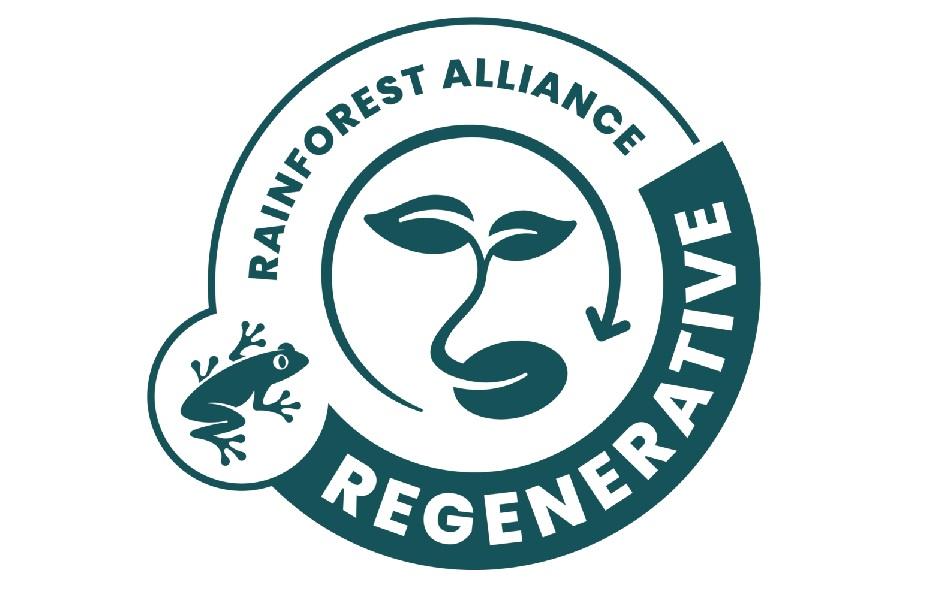The Rainforest Alliance, an international non-profit focused on ensuring responsible commodity sourcing by companies, announced the introduction of its new Regenerative Agriculture Standard, a new certification aimed at supporting coffee farmers while restoring ecosystems in tropical regions.
Active in 62 countries, the Rainforest Alliance works with farmers, communities, governments, and companies worldwide. In 2024, it partnered with nearly 8 million farmers and more than 7,850 businesses. The organization’s “little green frog” certification seal is awarded to farms that meet criteria for sustainable practices across factors including nourishing land, using fewer pesticides, fighting climate change, treating workers fairly, among other requirements. The seal now appears on over 40,000 products, and many brands now source through Rainforest Alliance including Starbucks, Ben & Jerry’s, Lipton, and Nestlé. By 2030, the group aims to reach 100 million farmers and workers.
Under the new Regenerative Agriculture Standard, starting early next year, products that meet the requirements will carry a unique seal, signaling to shoppers that they come from farms and companies dedicated to improving soil health and rural livelihoods.
Regenerative agriculture practices are aimed at addressing the environmental impact of the sector, and include techniques to improve and restore ecosystems, build soil health and fertility, reduce emissions, enhance watershed management, increase biodiversity, and improve farmers’ livelihoods.
The Rainforest Alliance’s new framework gives producers a clear, science-based way to measure progress in five areas, including soil fertility, climate resilience, biodiversity, water management, and livelihoods. Independent audits will confirm compliance before farms and companies can display the regenerative seal.
Although coffee is the first crop covered, the nonprofit plans to extend the certification to cocoa, citrus, and tea by 2026. The organization noted that volatile weather patterns, soil degradation, and market instability continue to threaten harvests and undermine the income of coffee growers, particularly smallholders, who are responsible for over 70% of global production.
Santiago Gowland, Rainforest Alliance’s CEO, said:
“Markets need to move beyond a ‘do no harm’ mindset to one that repairs and restores. Now is the time to transition to a new model of agriculture – one where every cup of coffee gives back more than it takes from the land and the people who care for it. After years of research and collaboration with farmers and companies, we are proud to introduce a Regenerative Agriculture Certification to help drive this shift.”
For companies, sourcing regenerative coffee certified by the Rainforest Alliance said that the new standard will offer a way to bolster supply chain resilience, improve ESG performance, and answer growing consumer demand for credible sustainability labels. Consumers will be able to choose products that deliver measurable benefits to both people and the planet.
The standard is already being applied on farms in Brazil, Costa Rica, Mexico, and Nicaragua, with the first certified products expected in stores in 2026.

